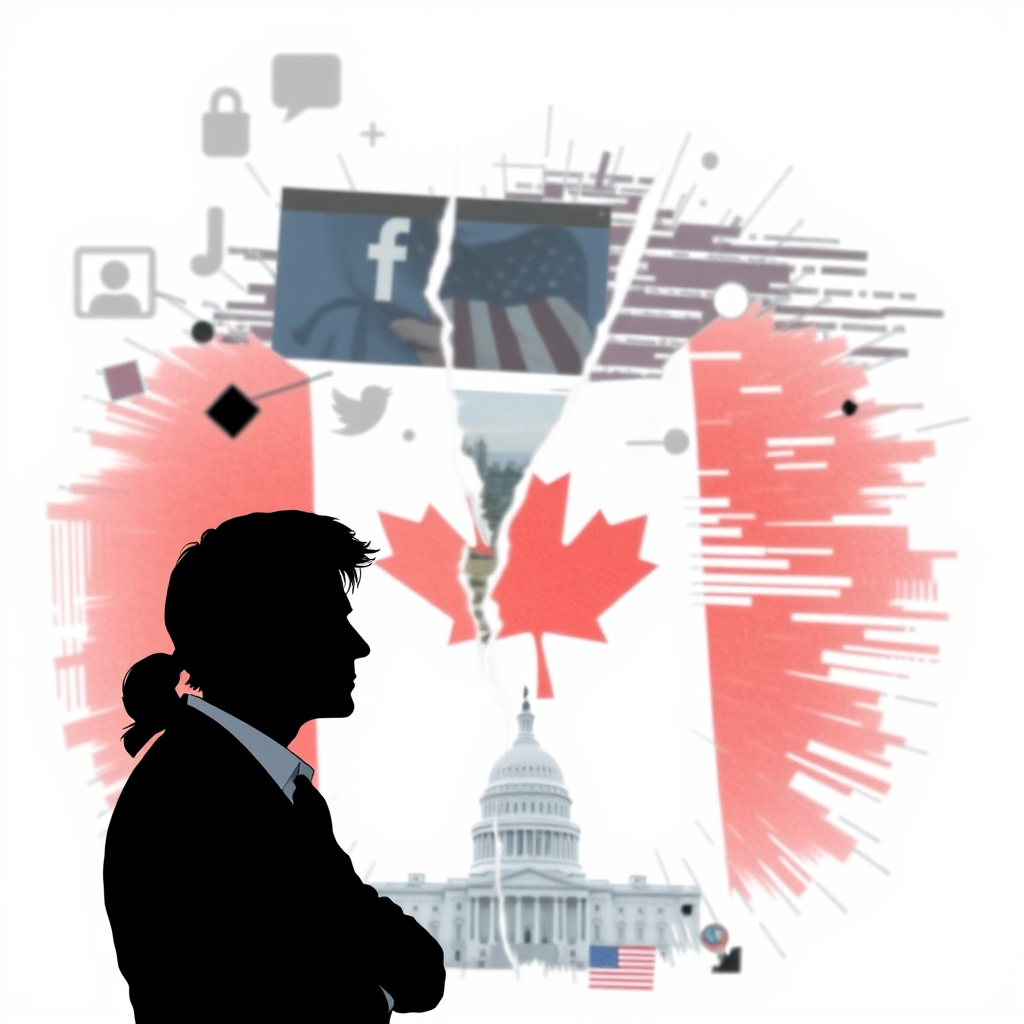US Right-Wing Media Targets Canadian Election Voters

Canadian politics are increasingly becoming a battleground for narratives originating south of the border, as right-wing US influencers attempt to shape public opinion ahead of the nation’s upcoming election. These figures, many instrumental in Donald Trump’s 2024 victory, are disseminating warnings – often based on flawed information – about issues ranging from immigration to social welfare, potentially impacting Canadian voters.
The involvement isn’t new, but experts note a heightened intensity. Charlie Kirk, a prominent conservative activist, recently platformed Maxime Bernier, leader of Canada’s far-right People’s Party, allowing Bernier to propagate the “replacement theory” – a conspiracy alleging a deliberate effort to diminish the white population through immigration. Similarly, Joe Rogan, a highly influential podcaster, has characterized Canada as authoritarian, falsely claiming restrictions on online expression and even suggesting a preference for living in Russia over Montreal. Rogan’s claims stemmed from a misrepresentation of Canada’s legislation requiring digital platforms to compensate news organizations – a law that prompted Meta to remove news content from its platforms, not a government ban.
The impact of this external influence is a growing concern. Amarnath Amarasingam, a Queen’s University professor studying online communities, points to the significant overlap between US and Canadian media environments, making Canadians susceptible to American influencer content. This extends beyond immigration, touching on sensitive “culture war” topics like gender identity and racial dynamics.
Stephanie Carvin, an associate professor at Carleton University, notes a pattern of both right and left-wing US commentators misrepresenting Canada to suit their own agendas. While the right often frames Canada as a cautionary tale of societal decline due to progressive policies and higher taxes, some on the left idealize the country as a progressive utopia, distorting statistics on issues like gun violence. Canada’s familiarity to American audiences makes it an easy target for such narratives.
Interestingly, this external pressure doesn’t appear to be resonating as strongly as it might. The current election campaign is largely defined by Canadian concerns – specifically, anger over Trump’s trade policies and threats of annexation, coupled with a surge in Canadian patriotism. However, the Conservative Party has reportedly attempted to leverage connections with right-leaning Canadian influencers who also have ties to the American online right, complicating the assessment of external influence.
This situation highlights a concerning trend: the increasing permeability of national borders in the digital age. While healthy debate is vital, the deliberate spread of misinformation by foreign actors – even those operating within the bounds of political commentary – poses a threat to informed democratic participation. The Canadian election serves as a stark reminder that safeguarding the integrity of public discourse requires vigilance against external manipulation and a commitment to fact-based reporting. It’s not simply about what’s happening in Canada, but about who is attempting to shape the narrative around Canada, and to what end.